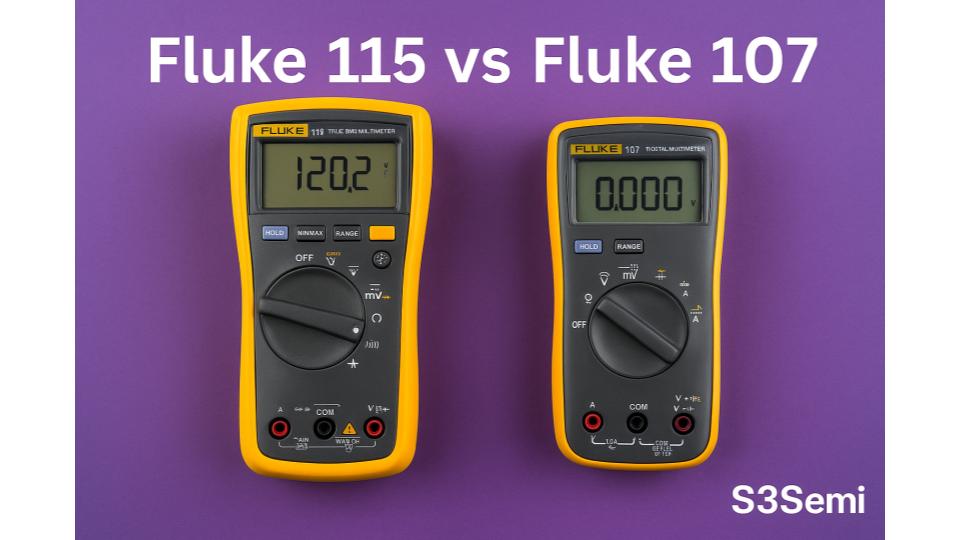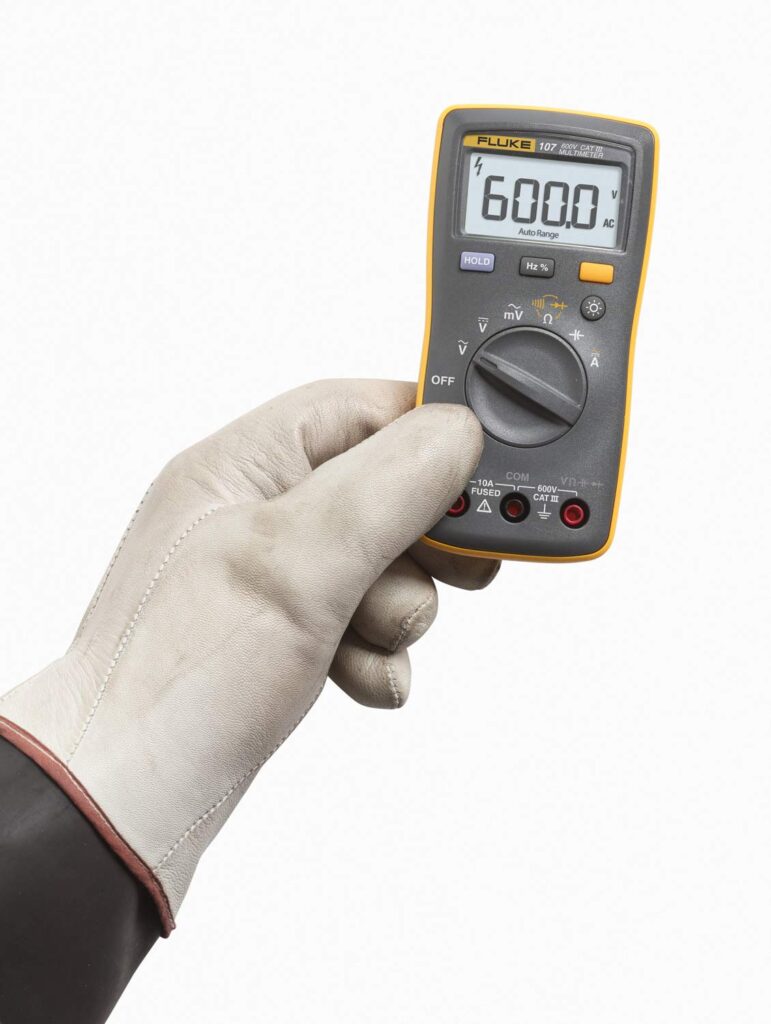Fluke multimeters are known for accuracy, reliability, and rugged design. Two of the most popular compact models – the Fluke 115 and Fluke 107, are often compared because they cater to similar users: electricians, technicians, and DIY enthusiasts who need professional-grade measurements in a small, portable form.
🏷️ Fluke Multimeter Deals ⭐⭐⭐⭐
Although both share Fluke’s legendary build quality, they differ in features, measurement range, and intended use. Let’s compare them side by side to help you decide which one is best for your toolkit.
🔍 Overview of the Fluke 115
The Fluke 115 is part of Fluke’s True RMS multimeter lineup, designed for field technicians, electricians, and service professionals.
It offers higher accuracy, a wider measurement range, and features that make it suitable for professional troubleshooting in electrical systems.
Key Features:
- True RMS for accurate readings on non-linear loads
- Measures AC/DC voltage, current (up to 10A), resistance, capacitance, frequency, and continuity
- LoZ (Low Input Impedance) mode to eliminate ghost voltages
- Large white LED backlight for visibility in low-light environments
- CAT III 600V safety rating
- Ergonomic, durable design
Best For: Electricians and technicians who need precision and reliability in professional environments.
⚙️ Overview of the Fluke 107
The Fluke 107 is a smaller, budget-friendly multimeter in Fluke’s compact series.
It’s great for light-duty electrical work, electronics troubleshooting, and home maintenance. Despite its smaller size, it offers impressive functionality for its price.
Key Features:
- Measures AC/DC voltage, resistance, continuity, capacitance, and frequency
- Current measurement up to 10A
- Compact, pocket-size design
- Backlit display for better visibility
- CAT III 600V safety rating
- Optional magnetic strap for hands-free use
Best For: Hobbyists, students, and technicians who need a reliable multimeter for light-to-medium electrical work.
📊 Side-by-Side Comparison
| Feature | Fluke 115 | Fluke 107 |
|---|---|---|
| True RMS | ✅ Yes | ❌ No |
| Voltage Range | Up to 600V | Up to 600V |
| Current Range | Up to 10A | Up to 10A |
| Frequency Measurement | ✅ Yes | ✅ Yes |
| Capacitance Measurement | ✅ Yes | ✅ Yes |
| Temperature Measurement | ❌ No | ❌ No |
| LoZ Mode | ✅ Yes | ❌ No |
| Display Backlight | ✅ Yes | ✅ Yes |
| Safety Rating | CAT III 600V | CAT III 600V |
| Size | Larger (professional-grade) | Compact (pocket-size) |
| Warranty | 3 years | 1 year |
| 💳 Pricing | 💲 Check Price | 💲Check Price |
✅ Pros and Cons
Fluke 115 Pros
- True RMS ensures accurate readings on all load types
- LoZ mode eliminates ghost voltages
- Excellent for professional and field use
- Durable, ergonomic design
- Wider functionality and higher accuracy
Fluke 115 Cons
- More expensive than the 107
- Slightly larger and heavier
Fluke 107 Pros
- Compact and highly portable
- Affordable yet reliable
- Backlit display and easy-to-use interface
- Ideal for basic electrical and electronic work
Fluke 107 Cons
- No True RMS function
- No LoZ mode
- Shorter warranty and fewer features
When is True RMS Required?
You would need True RMS accuracy when measuring AC signals that aren’t pure sine waves, such as those produced by variable frequency drives, switching power supplies, or modern electronic loads. Standard averaging multimeters can give incorrect readings on these distorted waveforms, leading to diagnostic errors.
True RMS meters like the Fluke 115 calculate the actual root mean square value, ensuring accurate measurements even when the voltage or current waveform is irregular or contains harmonics.
🏆 Verdict: Fluke 115 or Fluke 107?
Both the Fluke 115 and Fluke 107 are excellent compact digital multimeters, but they cater to different needs.
- Choose the Fluke 115 if you’re a professional electrician, field technician, or engineer who needs True RMS accuracy, LoZ mode, and higher precision for complex troubleshooting.
- Choose the Fluke 107 if you’re a hobbyist, student, or light-duty technician looking for a reliable, affordable, and easy-to-carry multimeter for everyday measurements.
👉 In short:
- Fluke 115 = Professional accuracy and advanced features.
- Fluke 107 = Compact, affordable, and perfect for light work.





